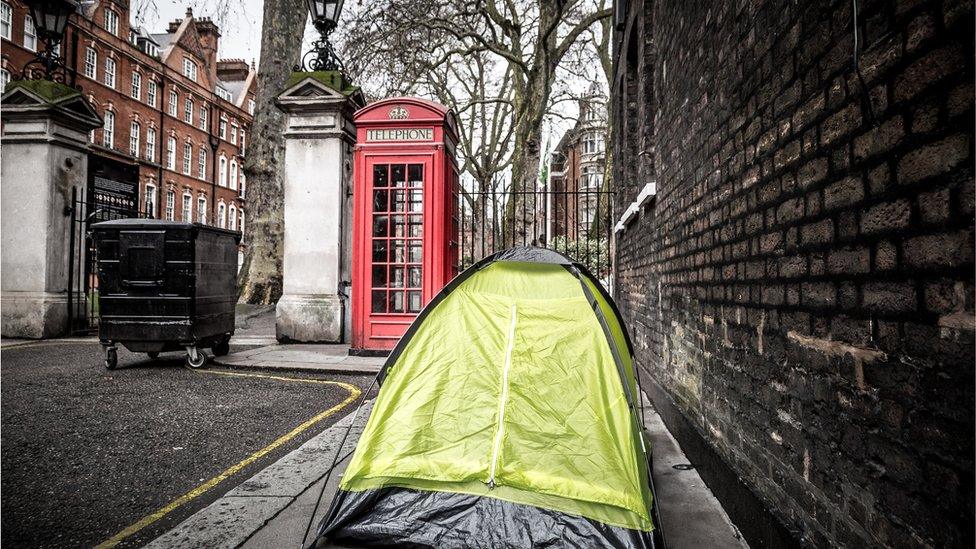First-time rough sleeping in London up 29% - data
- Published
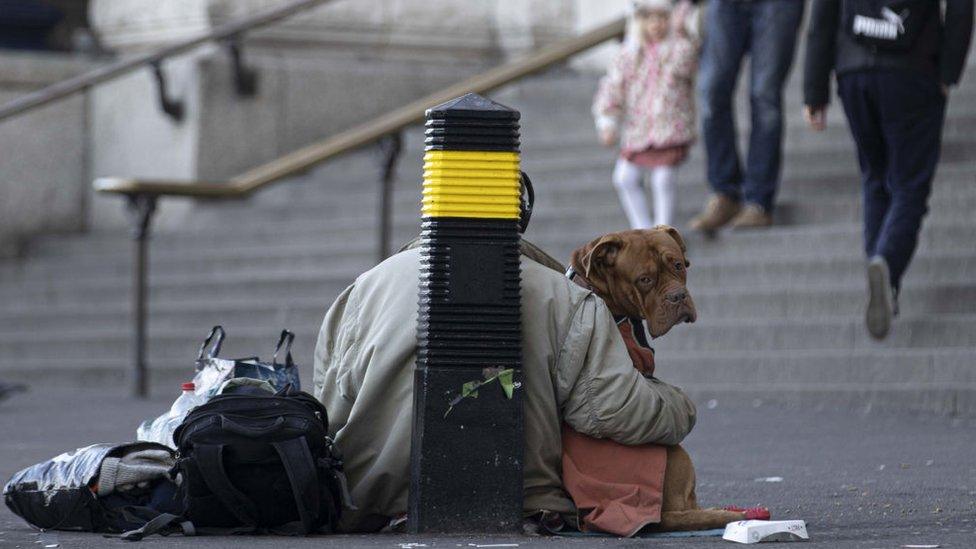
A total of 3,570 people were recorded on the streets by outreach teams between October and December 2022
The number of first-time rough sleepers on the capital's streets has grown by 29% year on year, data funded by the Greater London Authority shows.
A total of 3,570 people were recorded on the streets by outreach teams between October and December with 1,700 of those first-time rough sleepers.
London mayor Sadiq Khan says the figure is "evidence of the devastating fallout from the cost-of-living crisis".
A spokesperson said the government was committed to ending rough sleeping.
A Department for Levelling Up, Housing and Communities spokesperson said it was spending £162m in London over the next three years to tackle rough sleeping and homelessness.
The newly released figures were recorded by the Combined Homelessness and Information Network (Chain), which is funded by the Labour-led Greater London Authority.
Mr Khan said "extraordinary financial pressures" were "putting the poorest Londoners at growing risk of homelessness".
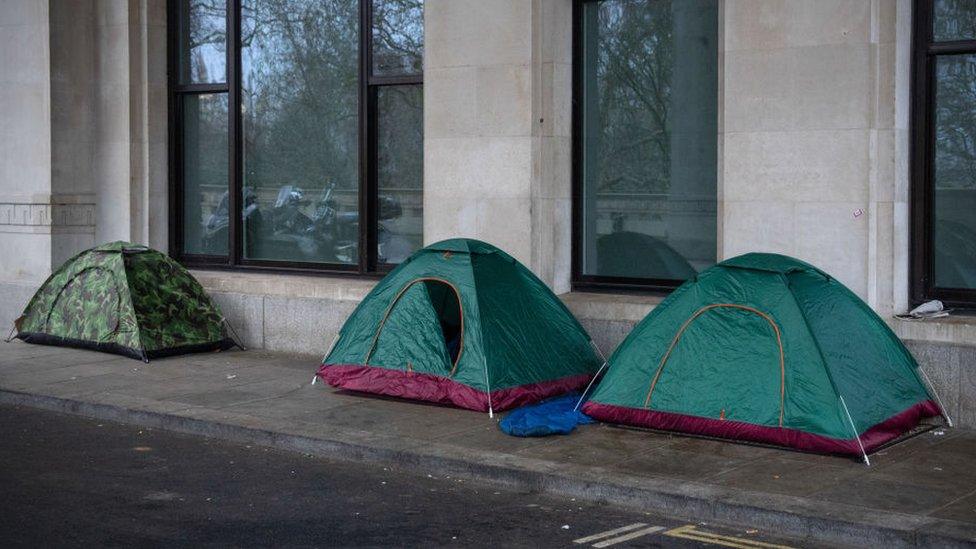
First-time rough sleepers in London increased by 29% in a year to 1,700
It found there were 21% more people sleeping rough - whether for the first time or not - than during the same three-month period in 2021.
First-time rough sleepers also represented 48% of the total number of London's rough sleepers in the final three months of last year.
The highest numbers were found in the City of London, Westminster and the South Bank, with high concentrations also seen in Woolwich, Stratford and at Heathrow.
More than 1,200 first-time rough sleepers were on the street for one night before they found, or were given, accommodation.
Men made up about 83% of those who were rough sleeping. About 48% were UK nationals, with Romanians making up the second largest number at 13.3%. Polish people were the third highest group at 6.9%.
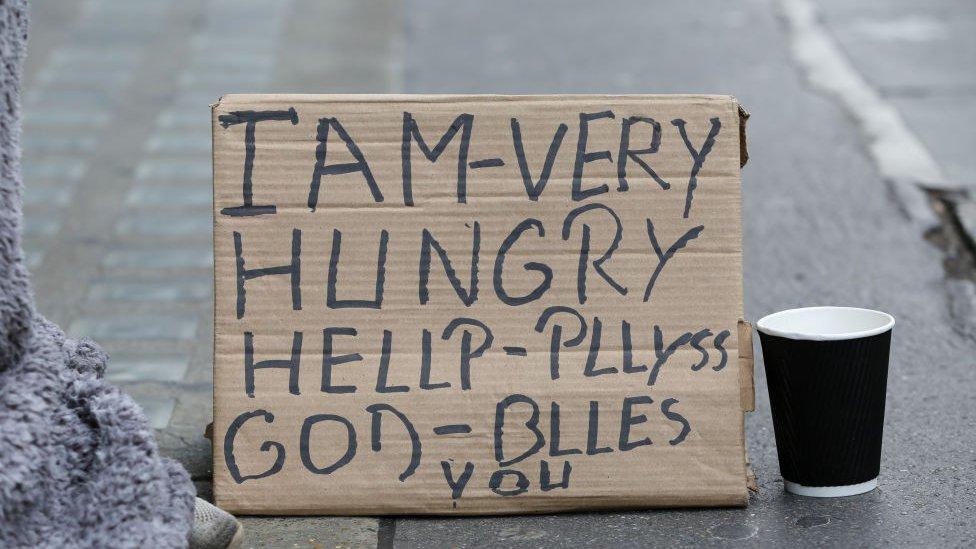
The highest numbers of rough sleepers were found in the City of London, Westminster and the South Bank
Mr Khan said: "I'm doing everything in my power to help those who find themselves out on the streets.
"Since I became mayor, City Hall services have helped a record 13,500 people, with the vast majority not seen sleeping rough again, and I've quadrupled our rough sleeping budget."
He called for more support from the government, adding: "It is high time ministers got a grip on the escalating food, energy and housing crises and restored the social security safety net which helps stop people becoming trapped in a cycle of homelessness."
He also called for the end to no-fault evictions for private renters and investment in new council and affordable homes.
Emma Haddad, chief executive of homeless charity St Mungo's said she had expected the number to rise but called the figures "exceptionally concerning".
"These latest figures once again show just how urgent the situation is," she added.
"We are asking the government to raise local housing allowance and urgently legislate the Renters' Reform Bill, as well as include the most vulnerable in the cost-of-living support packages."
The Department for Levelling Up, Housing and Communities spokesperson added that the £162m to tackle rough sleeping in the capital would "fund a range of support, including outreach, accommodation, mental health and other wrap-around help such as substance misuse support, immigration advice and help to find employment or training".
"The number of people sleeping rough nationally is at an eight-year low, but we understand the pressure services are facing and continue to work with them so we can build on the progress made so far and help more people off the streets."

Follow BBC London on Facebook, external, Twitter , externaland Instagram, external. Send your story ideas to hellobbclondon@bbc.co.uk, external
Related topics
- Published11 January 2023
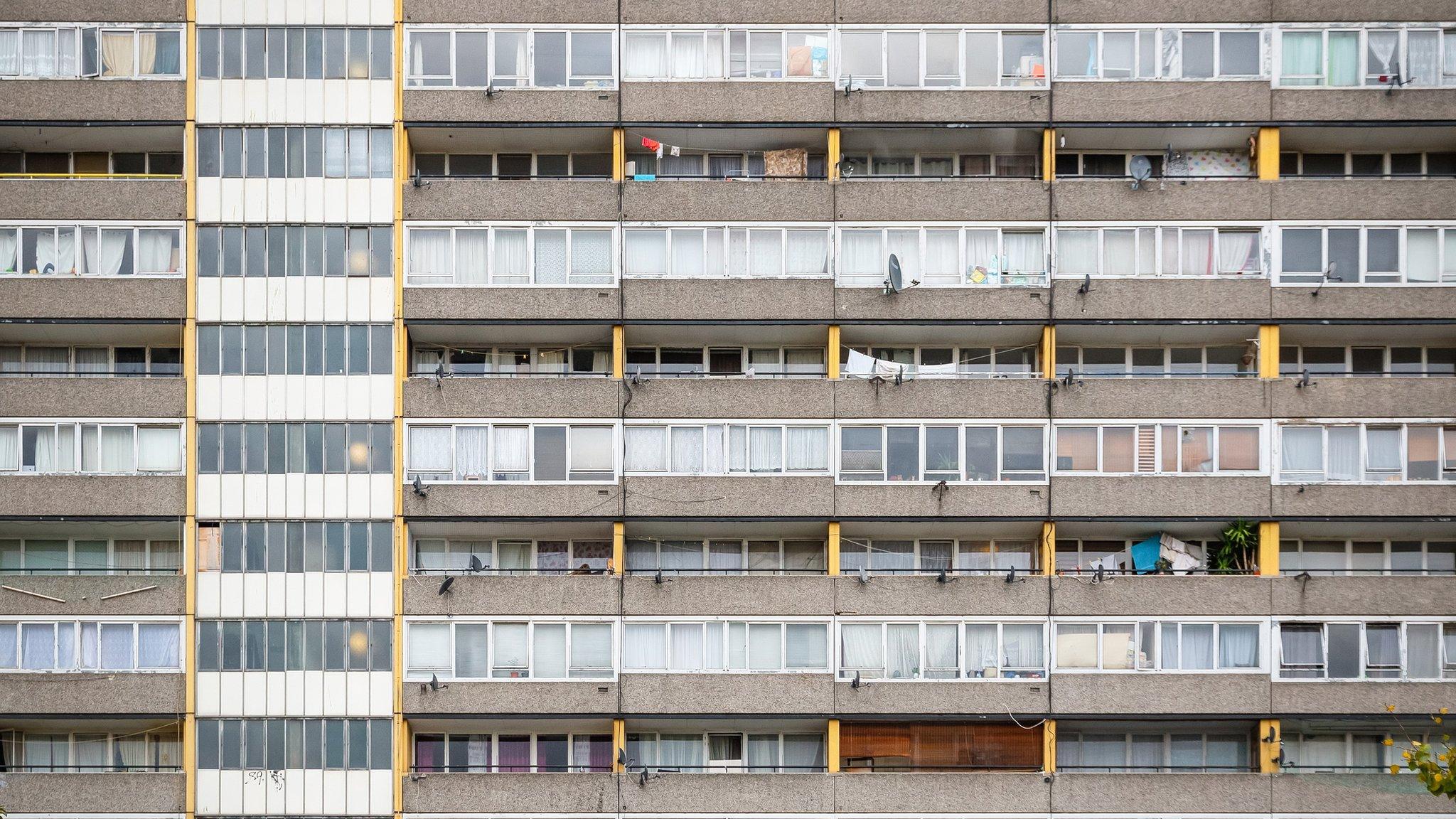
- Published30 October 2022
